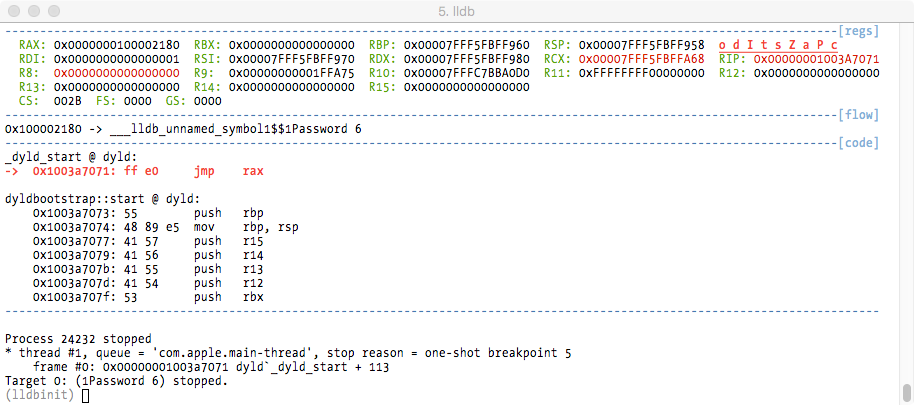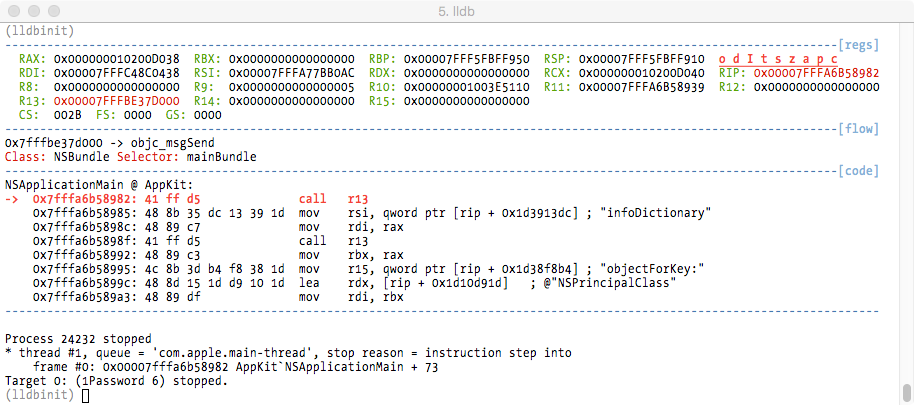LLDBINIT
A gdbinit clone for LLDB aka how to make LLDB a bit more useful and less crappy
(c) Deroko 2014, 2015, 2016
(c) fG! 2017, 2018 - reverser@put.as - https://reverse.put.as
https://github.com/gdbinit/lldbinit
No original license by Deroko so I guess this is do whatever you want with this as long you keep original credits and sources references.
Original lldbinit code by Deroko @ https://github.com/deroko/lldbinit
gdbinit available @ https://github.com/gdbinit/Gdbinit
Huge thanks to Deroko for his original effort! Without it this would not exist.
Most of gdbinit functions are converted, and a bunch of new functions added.
Some of the commands that were passed to lldb command line were converted to internal API.
Requirements
Tested with lldb out of Xcode 9.2, should work with older versions (but not that old).
Optional Keystone Engine (https://www.keystone-engine.org) for assembler support.
How to install
cp lldbinit.py ~
echo "command script import ~/lldbinit.py" >>~/.lldbinit
or
cp lldbinit.py /Library/Python/2.7/site-packages
echo "command script import lldbinit" >>~/.lldbinit
or
just copy it somewhere and use command script import path_to_script when you want to load it.
How to use
List all implemented commands with 'lldbinitcmds'
Configuration
There are some user configurable options on the header. You can also use the enable/disable commands to real time configure some options.
Features
The flow window shows the destination of calls, jmps, and returns, and also the class and selectors for Objective-C calls.
The crack family of commands allow you to automate return from functions with a value and skip code (for all your cracking isRegistered: and malware reversing needs) or breakpoint an address and set a given register to a value (also for all your cracking needs).
You can set the value of any register using its name, which is basically a shortcut for register write LLDB command.
The data window allows you to display the data of a certain memory location that you set with datawin command. Useful if you want to observe the contents of a string decryption routine for example.
The skip command allows you to skip exactly one instruction to next instruction (ignoring control flow!).
The bpn command breakpoints the next instruction (ignoring control flow!). It's useful to get out of a loop (when you are at the loop conditional jump tester and you breakpoint the next instruction to let the loop execute without stepping every iteration).

